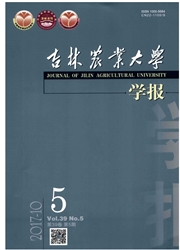

 中文摘要:
中文摘要:
植物天然群体中存在大量遗传变异,这些变异是随机突变和自然选择的结果,也是物种赖以生存和进化的原料。此外,不同植物种间乃至属间的天然远缘杂交是经常发生的事件,也是新种形成的重要方式,而远缘杂交为高度分歧的物种之间的基因交流提供了机会,因此也是产生新的遗传变异的重要途径。近年来的大量研究表明,植物天然群体中还存在一类不基于DNA序列差异的变异,被称为表观遗传变异(epigenetic variation)。植物发生远缘杂交以及此后的多倍体化过程可以产生大量的表观遗传变异,其遗传行为不能用经典遗传规律解释。表观遗传变异的另外一个重要来源是环境中的各种生物和非生物胁迫。研究较深入的表观遗传变异主要是编码基因和转座子DNA甲基化水平和模式的改变,但可以推测与之相关的组蛋白修饰和染色质结构也可能发生变化。目前对此类表观遗传变异的分子机理尚缺乏深入研究,但不难想像可能与各类non-coding RNA有关。这些表观遗传变异的后果是基因表达的大规模改变并由此产生新表型。作物远缘杂交育种实践表明,这些不能用经典遗传学理论解释的变异中蕴含许多在育种上有重要价值的变异并可能与杂种优势密切相关,对它们的产生机理和遗传规律的深入解析将有助于其在作物改良中的有效利用。
 英文摘要:
英文摘要:
It has been well established that natural plant populations harbor a great reservior of genetic variations, which demonstrates the outcome of random mutagenesis and natural selection and constitute the basis of orgnismal adaptation and evolution as well. In addition, sexual hybridization between different species or genera in plants is a common phenomenon in nature, which represents a predominant model of speciation, whereby rapid hybridization barrier may form and new species can emerge sympatrically with its parental ones. Recent studies have revealed that there also exists a different type of variation that is not DNA sequence-based, termed epigenetic variation. Accordingly, inter-specific hybridization and/or polyploidy is found to be often associated with epigenetic variations, and a major kind which alters in cy- tosine DNA methylation. These epigenetic variations often transgress the laws of classical heredity. Another apparent source of epigenetic variations is related to the various biotic and abiotic stresses existing in the habitats. Although available data have all pointed to alteration in DNA methylation as the predominant epigenetic marker, it is conceivable that other epigenetic mechanisms like histone modifications, chro- matin remodeling and non-coding RNA regulations can be involved. Epigenetic variations are consequen- tial to large-scale changes in gene expression, and hence, new phenotypes. Breeding experience has consistently indicated that these non-Mendelian, anomalous epigenetic variations may contribute to the genesis and variation of important agronomic traits, and be related to important phenomena like hybrid vagor or heterosis. Therefore, elucidation on mechanistic issues regarding the genesis of epigenetic variations, their stability and inheritance will enhance our manipulation capacities in crop genetic improvement.
 同期刊论文项目
同期刊论文项目
 同项目期刊论文
同项目期刊论文
 Heritable alteration in DNA methylation pattern occurred specifically at mobile elements in rice pla
Heritable alteration in DNA methylation pattern occurred specifically at mobile elements in rice pla Extent and pattern of genetic differentiation within and between phenotypic populations of Leymus ch
Extent and pattern of genetic differentiation within and between phenotypic populations of Leymus ch Xiaoling Li, Xiaoming Yu, Ningning Wang, Qizhi Feng, Zhenying Dong, Lixia Liu, Jinglin Shen, Bao Liu
Xiaoling Li, Xiaoming Yu, Ningning Wang, Qizhi Feng, Zhenying Dong, Lixia Liu, Jinglin Shen, Bao Liu Utility of the methylation- sensitive amplified polymorphism (MSAP) marker for detection of DNA meth
Utility of the methylation- sensitive amplified polymorphism (MSAP) marker for detection of DNA meth Genomic instability in phenotypically normal regenerants of medicinal plant Codonopsis lanceolata Be
Genomic instability in phenotypically normal regenerants of medicinal plant Codonopsis lanceolata Be Xiaohui Shan, Zhenlan Liu, Zhenying Dong, Yongming Wang, Yu Chen, Xiuyun Lin, Likun Long, Fangpu Han
Xiaohui Shan, Zhenlan Liu, Zhenying Dong, Yongming Wang, Yu Chen, Xiuyun Lin, Likun Long, Fangpu Han Alterations in DNA methylation and genome structure in two rice mutant lines induced by high pressur
Alterations in DNA methylation and genome structure in two rice mutant lines induced by high pressur Endosperm-specific hypomethylation, and meiotic inheritance and variation of DNA methylation level a
Endosperm-specific hypomethylation, and meiotic inheritance and variation of DNA methylation level a Extent and pattern of DNA methylation alteration in rice lines derived from introgressive hybridizat
Extent and pattern of DNA methylation alteration in rice lines derived from introgressive hybridizat Rapid And Repeatable Elimination of a Parental Genome-specific DNA repeat (pGc1R-1a) in newly synthe
Rapid And Repeatable Elimination of a Parental Genome-specific DNA repeat (pGc1R-1a) in newly synthe 期刊信息
期刊信息
